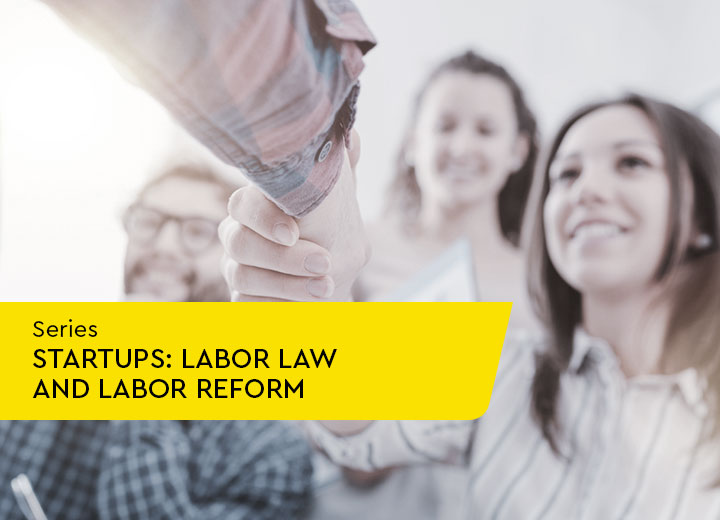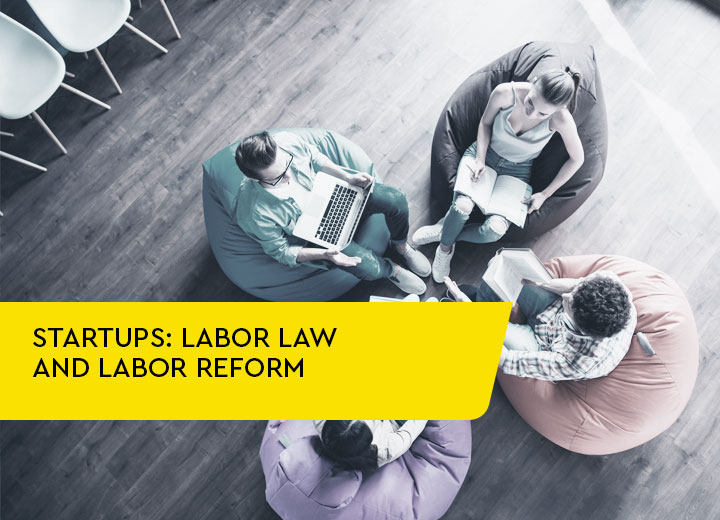Labor and employment
After undergoing various changes for approval by the Chamber of Deputies on August 13, 2019, the bill arising in response to the Economic Freedom Executive Order went to vote in the Federal Senate.
Startups are known for developing transformative and disruptive businesses, due to the very entrepreneurial and bold essence of their founders and employees. Their three primary and valuable assets are: (i) human capital, the people who strive to develop businesses to solve problems; (ii) inventions, products to be offered; and (iii) strategic and confidential information on the business.
Since November of 2017, when the Labor Reform established that the "premiums" are not subject to the application of labor and social security charges, much has been discussed about the Federal Revenue Service's interpretation of this concept and the requirements to apply it. The issue gains importance when one takes into account that the social security legislation does not define the concept of a premium either.
The new Collective Bargaining Agreement for Bank Employees 2018/2020 (CCT) brought in an important change by including the first paragraph in section 11,[1] which provides for offsetting between the value of the 7th and 8th hours granted as overtime and the bonus of function, in the event of de-qualification, in a labor claim, of the position with the bank as being one of trust.
New decision by the Superior Labor Court (TST) reopened discussions on the concept of a stigmatizing disease adopted by the labor courts. In an opinion published in April, the Justices of Subsection I Specialized in Individual Disputes (SDI-1) of the TST, unanimously, denied relief to a motion for clarification filed by a company and upheld a decision by the Seventh Panel of the TST that recognized prostate cancer as a stigmatizing disease
Published in May of last year, Resolution No. 4661 of the National Monetary Council (CMN) established new guidelines for investment of funds by plans managed by private complementary pension entities (EFPC) and changed some benchmarks for the investments made by these institutions, raising doubts and causing challenges for their managers.
Incentives linked to shares are part of the essence of the business model of startups. The most common are stock option plans, restricted stock units (RSUs), restricted shares, phantom stock, and phantom stock options.
Startups are, by definition, the work environment of young people, a demanding public when it comes to instantaneousness in relationships and communications, an entirely flexible routine and less bureaucracy. This innovative profile makes day to day work very informal.
To facilitate and modernize access to information related to all formal professional experiences of workers, the Ministry of Labor launched in late November of 2018 the Digital Employment Record Card, or Digital CTPS, as a free application available on the iOS and Android platforms.
When one speaks of startups, one of the first things that comes to mind is the informality of the work environment compared to that of traditional businesses. Flexible work schedules and stripped-down offices, coupled with the possibility of rapid career advancement, are often startups’ greatest attraction in recruiting talent in the job market. However, not all informality is positive for business.
Startups create innovative business models. One example is the shared economy, which emerged from the broadening of the concept of the gig economy[1] (also known as the "freelancer economy"). In it, online platforms serve as a broker between freelancers or service providers and people or companies that need their work and guarantee these professionals autonomy to work when and how they want.
Presidential Decree (MP) No. 873/2019, published on March 1, 2019, amended the CLT to prohibit the collection of union dues from any employees who have not given express authorization, individually and in writing to their union, following the case law of the Federal Supreme Court (STF), which had already ruled the collection of trade union dues to be optional.













